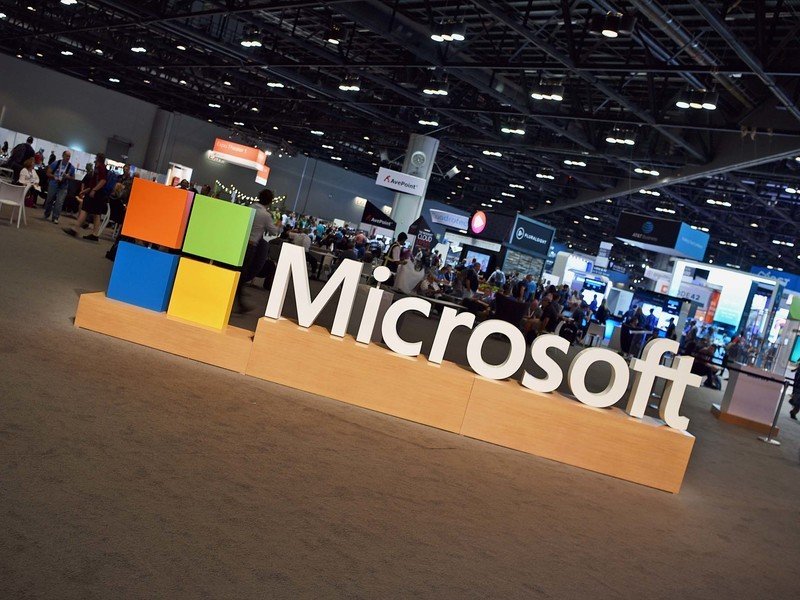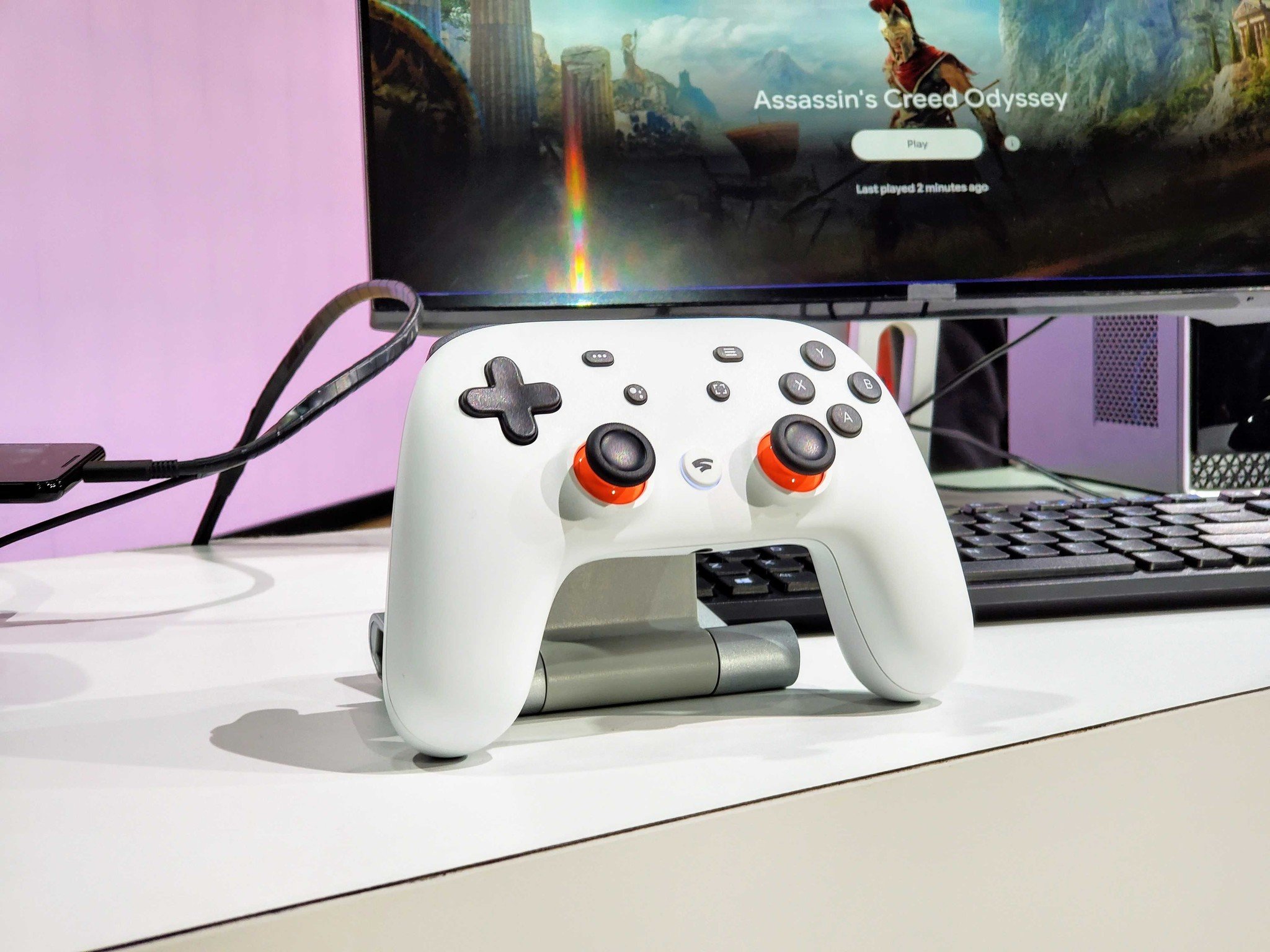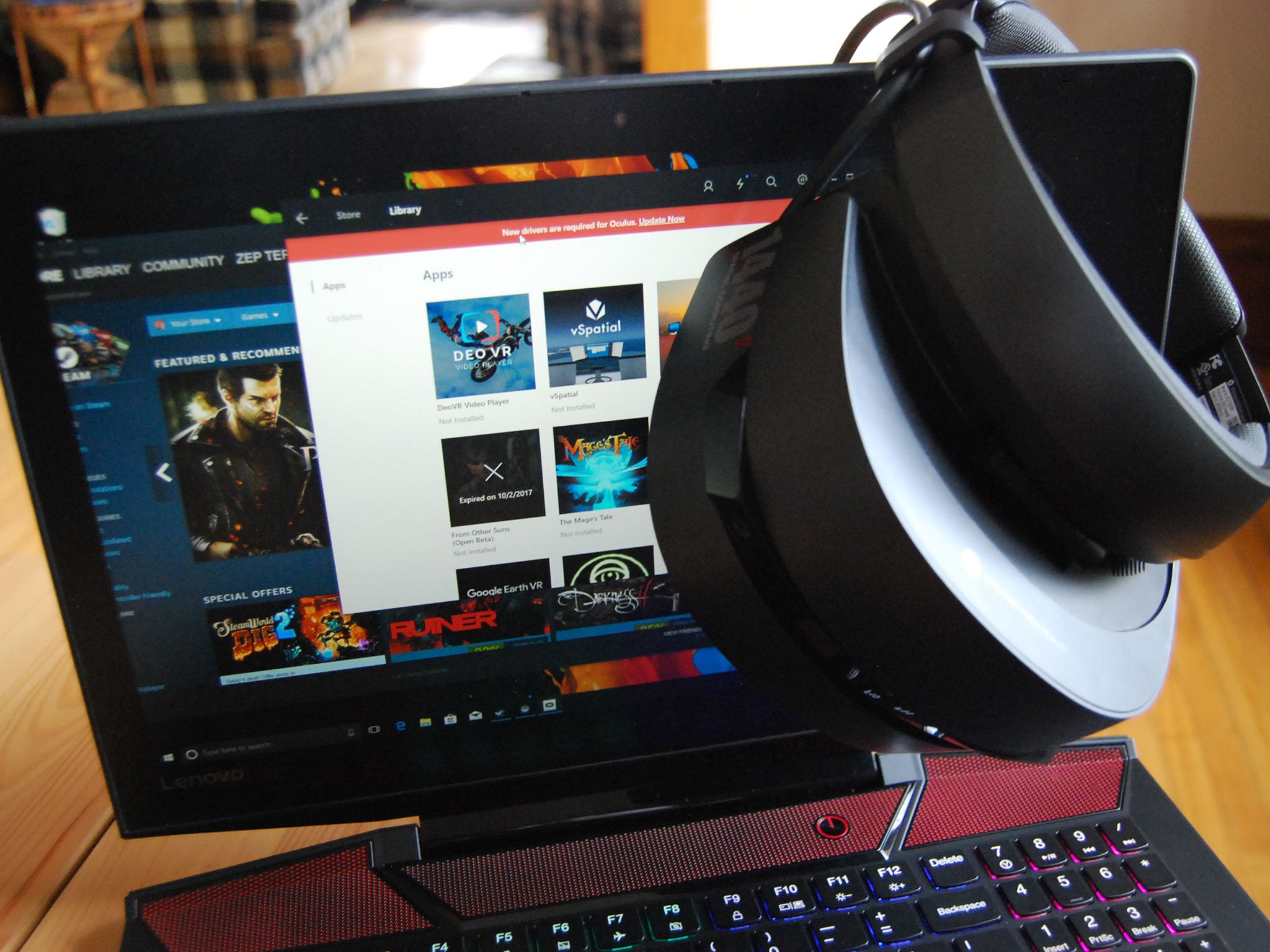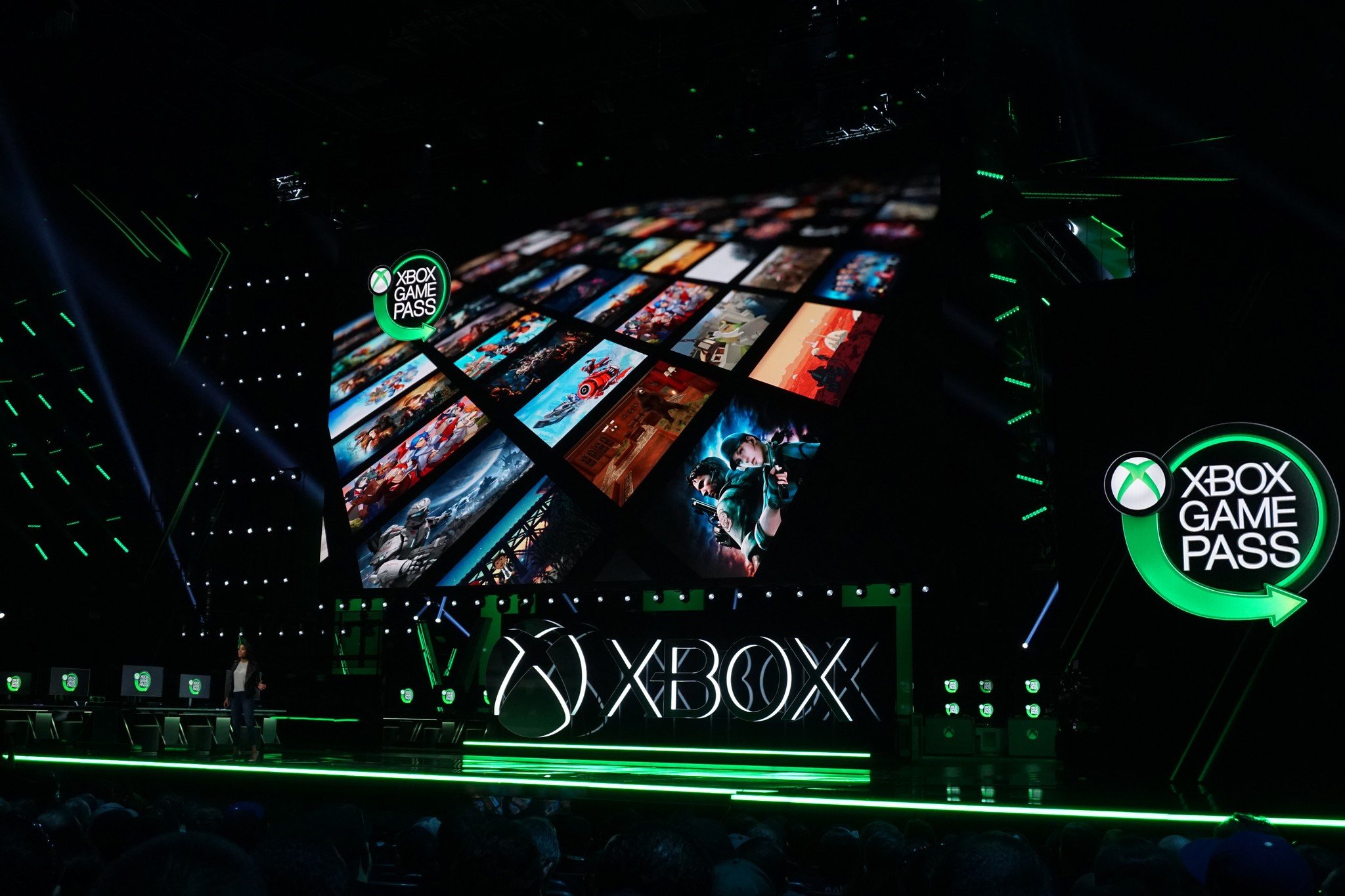Source: Windows Central
Tech
The Microsoft-Activision acquisition targets Google and Meta more than Sony – Android Central

Microsoft claims its recent Activision Blizzard acquisition is about more than just gaming: it will “provide building blocks for the metaverse.” So while everyone initially freaked out about Game Pass exclusives and whether Call of Duty will remain on the PS5 (it will), most people didn’t notice that Microsoft’s ambitions go well beyond the traditional console wars with Sony and Nintendo.
When I first read the announcement, I’ll admit I groaned a bit. Since Facebook announced its own Metaverse plans last year, it’s been the go-to buzzword for tons of companies. Particularly at CES, where companies claimed they were building it without any basis in reality. It’s become hard to take any metaverse plans seriously when no one can agree on what, exactly, it is.
Sometimes, IPs matter more than products.
What’s clear is that Microsoft “absolutely plans” to adapt its IPs from traditional gaming to a “full 3D world”, as CEO Satya Nadella told Bloomberg last year. The VR/AR technology may not be ready for an immersive Micro-verse, but Nadella has spent his CEO tenure hoarding IPs like Minecraft, Elder Scrolls, and now World of Warcraft. All of which could easily spin out into separate corners of a Ready Player One-esque playground down the road.
Sony will be just fine with its Playstation Studios exclusives; as Microsoft itself said in its press release, even this acquisition leaves it trailing Sony and Tencent in annual revenue. And Microsoft stands to make a fortune off of PS5 gamers playing Call of Duty, so why rock the boat?
Instead, I believe the Microsoft-Activision acquisition will matter more in the future mixed-reality wars with Google, Meta, Sony, and Apple. Microsoft isn’t as big a name in the VR/AR space, but it’s playing the long game by recognizing that sometimes, IPs matter more than products.
A Microsoft-Meta acquisition war, with the FTC as the arbiter



On the surface, Meta and Microsoft get along well enough, with Microsoft recently agreeing to bring Teams to Quest 2 headsets. But behind the scenes, they’re fighting for the same resources and market share.
Talent-wise, Microsoft recently lost 100 Hololens employees, with much of its talent transferring directly to Meta. The same goes for Apple, which lost about 100 engineers to Meta and began giving $180K bonuses to its AR/VR engineers so they’ll stay. Meta is actively plucking the best and brightest from its competitors.
Then you have to look at Meta’s rabid acquisitions of popular VR hardware and software developers, including Beat Games (Beat Saber), BigBox VR (Population: One), and Supernatural — the latter’s $400 million acquisition leading to an FTC antitrust investigation. It even bought a VR lens startup originally bankrolled by Valve, which triggered another lawsuit.



Meta is doing everything it can to entrench itself as the VR/AR authority and thwart other rivals from stepping up. Bloomberg even claims Activision shopped itself to Meta as a potential buyer first before going to Microsoft, which would have certainly fast-tracked a Call of Duty VR game on the Quest 2. But Facebook’s privacy issues, combined with Activision’s toxic workplace issues and the FTC’s increased scrutiny, ensured it was never likely to happen without causing a mess.
Instead, it’s Microsoft who will continue to shore up its gaming monopoly, just as Congress pushes a major tech antitrust law. The Activision Blizzard deal flies in the face of that, and President Biden’s FTC could certainly choose to step in, as analyst Gene Munster recently suggested to CNBC.
Whatever happens legally, this deal will give Microsoft even more popular AAA exclusives to push, while Meta still primarily relies on talented indie developers for its success. If Microsoft can translate CoD, Overwatch, or Diablo into compelling hybrid-VR experiences as Sony will with its PS5 VR games, that could fling it forward on the path to metaverse success. And that’s not even counting Minecraft, Halo, its new Bethesda IPs, and the rest of its current assets.
Microsoft can’t push its “metaverse” if no one uses its VR platform.
The problem is that I’m not convinced Microsoft can pull off Nadella’s metaverse ambitions. Windows Mixed Reality (WMR) headsets like the HP Reverb 2 prove that the company is taking the software side of VR seriously, but a glance at the most recent SteamVR hardware survey shows only about 5.5% of users have a WMR headset. And SteamVR doesn’t come close to the adoption numbers of the standalone Quest 2.
That’s where Microsoft needs to improve for this deal to matter. In my mind, it has two paths to higher adoption, and neither involves wired VR. Either its PC-dependant headsets need to connect wirelessly, or it needs to release a standalone Windows device like the rumored Valve Deckard headset, one that attracts more than just Windows users.
If Microsoft ever wants VR Game Pass to succeed, all-in-one VR is the way to go. For that, it will likely have to rely on the cloud.
Stadia is more of a problem for Microsoft than you’d think



Google and Microsoft are two VR/AR companies whose track records inspire more pessimism than optimism. Google Glass and Microsoft Hololens inspired some incredible hype that has since fizzled over the past six-ish years of expensive Enterprise editions.
Microsoft’s most recent $22 billion Hololens contract with the U.S. Army shows where its true priorities lie. Why focus on Call of Duty for teens when you can get more money for actual advanced warfare? Allegedly, the team is stretched thin supporting this contract, which doesn’t leave much room for anything else. As for Google, it has spent far more time on smartphone AR but hasn’t done anything that exciting with it in years.
In this context, the Google Project Iris leak left us intrigued but wary of further disappointment. It’s a new AR/VR headset designed like a “pair of ski goggles” that’ll “remotely render some graphics and beam them into the headset via an internet connection.” In other words, it’ll likely use the power of Stadia cloud computing for a standalone design when it launches in 2024.
When it comes to cloud computing for gaming, Google and Microsoft are the two leading players, giving them a significant edge for portable AR. Whether either can execute this advantage effectively is another question entirely.



Stadia had a rough 2021, mainly thanks to Google’s shuttering of its games studio but also due to the lack of exclusives. But it’s still technologically quite impressive and has a loyal cult following. Google has begun licensing it out to third parties like AT&T for their own cloud gaming purposes. It works, even if Google hasn’t supported it with major gaming acquisitions.
The problem, of course, is that if you weigh Stadia against Xbox Game Pass Cloud gaming, Microsoft wins. Xbox’s hundreds of 1st- and 3rd-party options for $15/month, or Stadia Pro’s 30-or-so free games that are mostly older AAAs or cute indie games for $10/month? It’s no contest.
Add in Microsoft’s monopolistic spending habits bringing even more titles onto Game Pass, and Stadia as a service can’t keep up. But Stadia as a processing power source for VR/AR, backed by all of Google’s beloved apps and experience with ARCore and Google Daydream? That very well could lead to something special. Assuming, of course, Google doesn’t underfund and kill Project Iris like it kills so many of its promising projects…like Daydream.



Microsoft has enough exclusive IPs to fill a pool and dive into Scrooge McDuck-style, and its Azure expertise has turned xCloud into a perfectly serviceable platform (even if it can’t handle Halo Infinite perfectly). But with its Hololens team tied up in the army business and no new VR/AR headset in sight, it’s not clear if Microsoft will be able to take advantage of these resources for years.
Suppose Google leverages its Android and VR knowledge into an exciting mixed-reality device with great apps and reliable Stadia support running over 5G networks, while Microsoft dawdles with PC VR and $3,000 AR headsets. In that case, Xbox VR/AR may have trouble getting off the ground until Google and the rest have already gained a foothold.
The acquisitions war to come



My colleague Jerry Hildenbrand argued that consumers chose the Apple-Google duopoly in the mobile space, making it impossible for competitors like the Windows Phone (RIP) to succeed regardless of how good the software was. Why? Because developers stuck to the Apple and Google Play app stores, so people felt left out with any other device.
Microsoft has the killer apps this time. Now it just needs the killer hardware.
So when it comes to VR/AR, these behemoth IP acquisitions may end up mattering just as much as how well the hardware works. No small third-party VR device will succeed, no matter how cheap or innovative, if parents know that Minecraft VR for the kids or Call of Duty: Warzone for their teens is only available on a Microsoft headset. Or, if AR devices become more ubiquitous for productivity, people will absolutely care whether it supports Google Workspace or Microsoft Office 365 apps.
So in the ensuing years it takes for VR and AR to reach their full potential, Microsoft, Sony, Meta, Google, Apple, and a few other rivals will keep rushing to acquire as many assets as possible. Gaming IPs, promising startups, and mixed-reality hardware will all be up for grabs. Unless the FTC or EU steps in and forces these companies to stop.
We’ll see in a few years whether it’s hardware or software advantages that give companies the edge in their monopolistic metaverse wars.



Delivery! It’s Postknight 2 for Android
Postknight 2 is a casual RPG adventure game that puts you in the shoes of a trainee Postknight who must rise through the ranks to become the greatest of them all.



These are the best Stadia games available to play right now in 2021
With the flexibility of Stadia, you can play a lot of your favorite games on your TV, phone, computer, laptop, or tablet easily. A Stadia Pro subscription includes some free games, but you can buy even more, ranging from AAA titles to indies and platform exclusives. Here are our picks for the best out there that you won’t want to put down.
Tech
The Ultimate Recap of Sea Otter 2024 – Pinkbike.com


Vittoria Releases New Peyote & Mezcal XC Race Tires
Maxxis Team Spec Aspen ST Tire
New DT Swiss 240 DEG Hubs
Kali Protectives’ New Full Face Helmets
Industry Nine’s SOLiX M Hubs & Wheelsets
Michelin’s Aggressive New Wild Enduro Tires
Praxis’ New Flat Pedals, Stem, & Carbon Bottle Cage
Transmission Cage Upgrades from Kogel, Ceramicspeed, and Cascade Components
Randoms Round 1 – Sea Otter 2024
Madrone Cycles’ SRAM Eagle Repair Kits & Prototype Derailleur
Vorsprung’s New Telum Coil Shock
EXT’s Vaia Inverted DH Fork & Updated Coil Shocks
Randoms Round 2: New Tools, Goggles, Grips, Racks, & More – Sea Otter 2024
What’s New in Women’s MTB Apparel at Sea Otter 2024
Even More Randoms – Sea Otter 2024
Randoms Round 3: Dario’s Treasures
What’s New for the Kids at Sea Otter 2024
Deity Releases New Stems, Grips, & Pedals
Dario’s Final Sea Otter Randoms
Brian’s Randoms from Sea Otter 2024
Videos
With roots dating back to 1991, the Sea Otter Classic is one of the biggest biking events and tradeshows each year and brings together all sides of the biking industry from athletes to brands, spectators and consumers. Taking place in April in the sunny hills of Monterey, California, that means this event really feels like the official start to the biking season in North America. Christina Chappetta covers why it’s much different to an indoor European biking tradeshow, a World Cup racing weekend or even Crankworx mountain bike festival, in that it encompasses nearly ALL of the biking disciplines, including road cycling, enduro, downhill, dual slalom, XC, trials riding and more.
In the past fortnight, we have seen large amount of new tech releases. However, Sea Otter 2024 represents some of the first opportunities for many riders to see these things in the flesh, as well as take a deeper dive into what the product aims to do.
Welcome to a video summary from Day 2 of the Sea Otter Classic.
There are so many giveaways, interesting new products and colourful characters at Sea Otter Classic that it’s hard to stand out from the crowd. Ben Cathro takes a lap of the venue to find his favourites.
Tech
Apple iPad Air 2024: Insider Makes Hasty U-Turn On New Feature – Forbes


Well, that was quick. On May 18, a respected industry insider predicted a new display technology for the iPad Air that’s expected in the coming days—Apple just announced its latest special event.
The new 12.9-inch iPad Air, the report claimed, would have the same miniLED backlighting currently found on the larger iPad Pro, using the leftover inventory from the current Pro as that model switches to OLED. That was exciting news.
But now, Ross Young, the analyst who made the claim, has changed his mind. The new prediction, shared with paid subscribers only, is that the miniLED technology won’t be coming to the iPad Air, in either size.
While it made sense that the inventory could be maximized in this way, it now “makes sense” that it won’t.
Young says that while he’d heard from supply chain sources that it would, he’d now had contact from “even more supply chain sources” that it won’t.
And the reason this change of heart now makes sense is that this miniLED technology is expensive, so it would be surprising if it made it to the iPad Air, which is more affordable than the Pro.
That’s not quite all the analyst shared. He also said that there are now reports of a new iPad coming later in the year. This is a 12.9-inch iPad, with miniLED backlighting and it could arrive between October and December this year.
function loadConnatixScript(document)
if (!window.cnxel)
window.cnxel = ;
window.cnxel.cmd = [];
var iframe = document.createElement(‘iframe’);
iframe.style.display = ‘none’;
iframe.onload = function()
var iframeDoc = iframe.contentWindow.document;
var script = iframeDoc.createElement(‘script’);
script.src = ‘//cd.elements.video/player.js’ + ‘?cid=’ + ’62cec241-7d09-4462-afc2-f72f8d8ef40a’;
script.setAttribute(‘defer’, ‘1’);
script.setAttribute(‘type’, ‘text/javascript’);
iframeDoc.body.appendChild(script);
;
document.head.appendChild(iframe);
loadConnatixScript(document);
(function()
function createUniqueId()
return ‘xxxxxxxx-xxxx-4xxx-yxxx-xxxxxxxxxxxx’.replace(/[xy]/g, function(c)
var r = Math.random() * 16 );
const randId = createUniqueId();
document.getElementsByClassName(‘fbs-cnx’)[0].setAttribute(‘id’, randId);
document.getElementById(randId).removeAttribute(‘class’);
(new Image()).src = ‘https://capi.elements.video/tr/si?token=’ + ’44f947fb-a5ce-41f1-a4fc-78dcf31c262a’ + ‘&cid=’ + ’62cec241-7d09-4462-afc2-f72f8d8ef40a’;
cnxel.cmd.push(function ()
cnxel(
playerId: ’44f947fb-a5ce-41f1-a4fc-78dcf31c262a’,
playlistId: ‘aff7f449-8e5d-4c43-8dca-16dfb7dc05b9’,
).render(randId);
);
)();
This is intriguing. What could it be? Assuming that the iPad Pro and iPad Air are released in May, it’s extremely unlikely either will be updated later in the year. And if the iPad Air isn’t pricey enough for miniLED to be included, what tablet could Apple be introducing that is the same size as the bigger Pro, with a pricey screen tech, which would sit between the Air and the Pro, it seems?
Young is highly reliable, but this seems slightly preposterous to me. The only other iPad in the range due a refresh is the regular iPad (at 12.9-inches, the iPad mini is clearly out of the picture) and that doesn’t seem likely either.
It seems to me that any regular iPad will almost certainly have the same screen size as now, 10.9 inches. The regular iPad only grew to this size screen in the current generation, and Apple almost never changes designs after one iteration.
Perhaps things will become clearer as the year goes on.
Tech
Woman who left beaten dad on floor for 2 days was 'overwhelmed' with his care, judge told – CBC.ca


A Calgary woman who abused her sick, 77-year-old father was “overwhelmed” at the task of caring for him, a judge heard Wednesday at a sentencing hearing.
In January, Tara Picard, 52, pleaded guilty to charges of assault and failing to provide the necessaries of life after her father (whom CBC News is not naming) was found injured on a basement floor, where he’d been lying for two days.
On Wednesday, prosecutor Donna Spaner and defence lawyer Shaun Leochko asked the judge to allow Picard to serve her sentence in the community under conditions as part of a conditional sentence order.
Justice Indra Maharaj agreed to a two-year conditional sentence for Picard followed by a year of probation.
“There is no doubt she became overwhelmed,” said Spaner in her submissions. “There is no question Ms. Picard has remorse.”
Leochko told the judge that caring for her father “was really more than [Picard] could handle.”
Maharaj heard that Picard is Indigenous and was the victim of abuse growing up. She lives in a sober dorm-style facility and is working with a mental health and addictions navigator, according to Leochko.
A ‘willingness to give back’
As part of the sentence, Picard must complete 300 hours of community service.
Justice Maharaj commended Picard for “taking that on.”
“That shows me Ms. Picard sincerely does recognize what has happened here,” said the judge.
“What I interpret from that is Ms. Picard’s willingness to give back to her community.”
During Picard’s plea, court heard that in November 2021, Picard and her father fought over his drinking.
Nurses discover victim
The victim suffers from a number of medical issues, including diabetes, heart disease, dementia and alcoholism.
At the time, home-care registered nurses were assigned to help provide supplementary care.
Nurses found the victim wearing a soiled adult diaper and suffering from two black eyes with blood on his head.
He told the nurses who discovered him that he’d been there for two days.
Picard admitted she knew her father had fallen and she had “administered a number of physical blows.”
-
News23 hours ago
Amid concerns over ‘collateral damage’ Trudeau, Freeland defend capital gains tax change
-
Art21 hours ago
The unmissable events taking place during London’s Digital Art Week
-



 Politics24 hours ago
Politics24 hours agoPolitics Briefing: Saskatchewan residents to get carbon rebates despite province’s opposition to pricing program
-
News22 hours ago
What is a halal mortgage? How interest-free home financing works in Canada
-



 Politics16 hours ago
Politics16 hours agoOpinion: Fear the politicization of pensions, no matter the politician
-
Economy21 hours ago
German Business Outlook Hits One-Year High as Economy Heals
-
Media14 hours ago
B.C. puts online harms bill on hold after agreement with social media companies
-



 Politics15 hours ago
Politics15 hours agoPecker’s Trump Trial Testimony Is a Lesson in Power Politics






